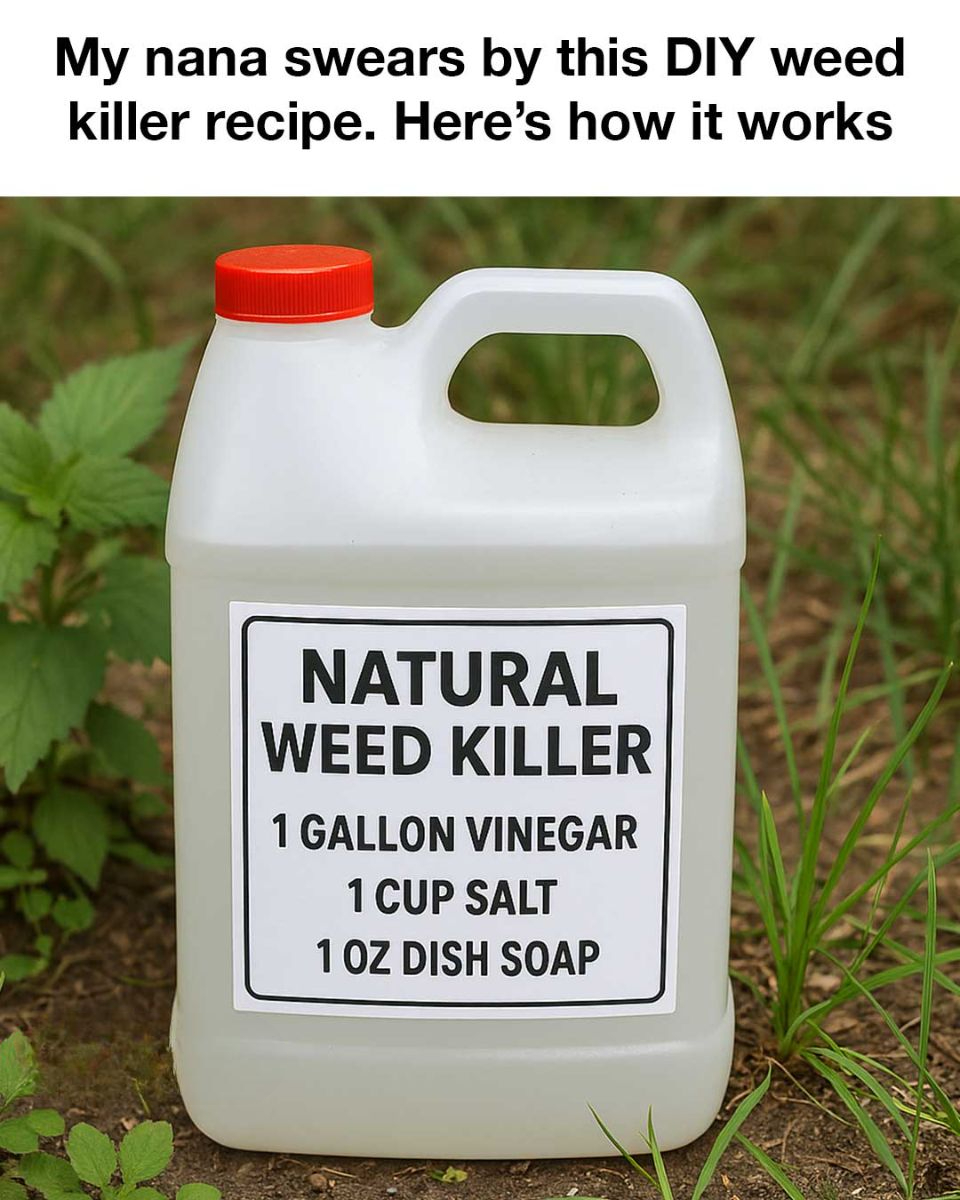In every gardener’s life, weeds are the relentless nuisance that never seem to go away. While store-bought weed killers are readily available, they often come with a list of unwanted side effects—many are loaded with chemicals that not only harm the weeds but can also damage the environment, pollute groundwater, and harm the very plants you want to protect.

That’s why more and more people are turning to natural solutions, many of which come from the tried-and-true wisdom of older generations. My nana, who has been gardening for decades, swears by a homemade weed killer that she’s used in her own garden for years. It’s made from basic household ingredients, it’s easy to mix, and it’s surprisingly effective. Nana’s recipe is a simple blend of white vinegar, salt, and dish soap, three ingredients you probably already have sitting in your kitchen. She uses one gallon of white vinegar, one cup of salt, and one tablespoon of liquid dish soap. Together, these components create a powerful mixture that dries out and destroys unwanted plants without the need for synthetic chemicals.
This DIY weed killer recipe has been passed down through generations in our family and originated during a time when commercial herbicides were either unavailable or too costly for the average gardener. Back then, people had to rely on what they had at home, and through a bit of experimentation, this homemade solution proved its worth. Each ingredient plays a vital role. The vinegar, which contains 5% acetic acid, is the main weapon against weeds. It kills them by breaking down the cell walls on contact, causing the plant to dry out and die. It’s especially effective on young, tender weeds that haven’t yet developed strong root systems. The salt dehydrates the plant by pulling water from its cells and disrupting its ability to take in nutrients.
While this makes the solution stronger, it’s important to note that salt can remain in the soil and make it difficult for other plants to grow, so use it only in areas where you don’t plan to plant anything, like driveways, patios, or gravel walkways. The dish soap helps everything stick. It acts as a surfactant, breaking down the surface tension so that the vinegar and salt cling to the leaves instead of dripping off. This improves the effectiveness of the mixture by allowing the solution to stay in place longer and penetrate the plant more thoroughly. To make the weed killer, pour the gallon of vinegar into a large spray bottle or garden sprayer.
Add the cup of salt and stir until it’s fully dissolved, which may take a few minutes. Once the salt is mixed in, add the dish soap and stir gently. When the mixture is ready, apply it directly to the weeds, focusing on the leaves rather than the soil. Choose a sunny, dry day to spray, preferably when temperatures are above 70°F, as heat helps activate the vinegar and enhances its drying power. Be sure to avoid spraying on any plants you want to keep, as the solution is non-selective and will harm all vegetation it touches. Always wear gloves and eye protection when handling the mixture to avoid irritation, even though the ingredients are natural. It’s also a good idea to be mindful of where you’re spraying—avoid areas near streams or ponds to prevent runoff. While this homemade weed killer may require more than one application for stubborn weeds, many gardeners find it worth the effort. It’s safe, affordable, and gives them confidence that they aren’t introducing harmful chemicals into their gardens. People have shared their own success stories using Nana’s recipe, with some saying it cleared up long-standing weed problems in just a couple of applications. Others have noted how well it works on cracks in driveways and sidewalks. For particularly stubborn weeds, you can increase the concentration of vinegar or salt slightly—but always monitor the soil for signs of salt buildup. With regular use and a little patience, this natural solution can keep your garden weed-free without compromising your health or the environment.





